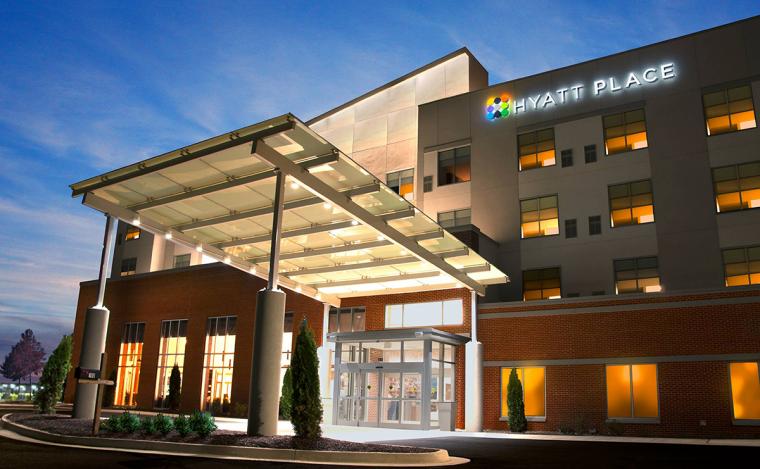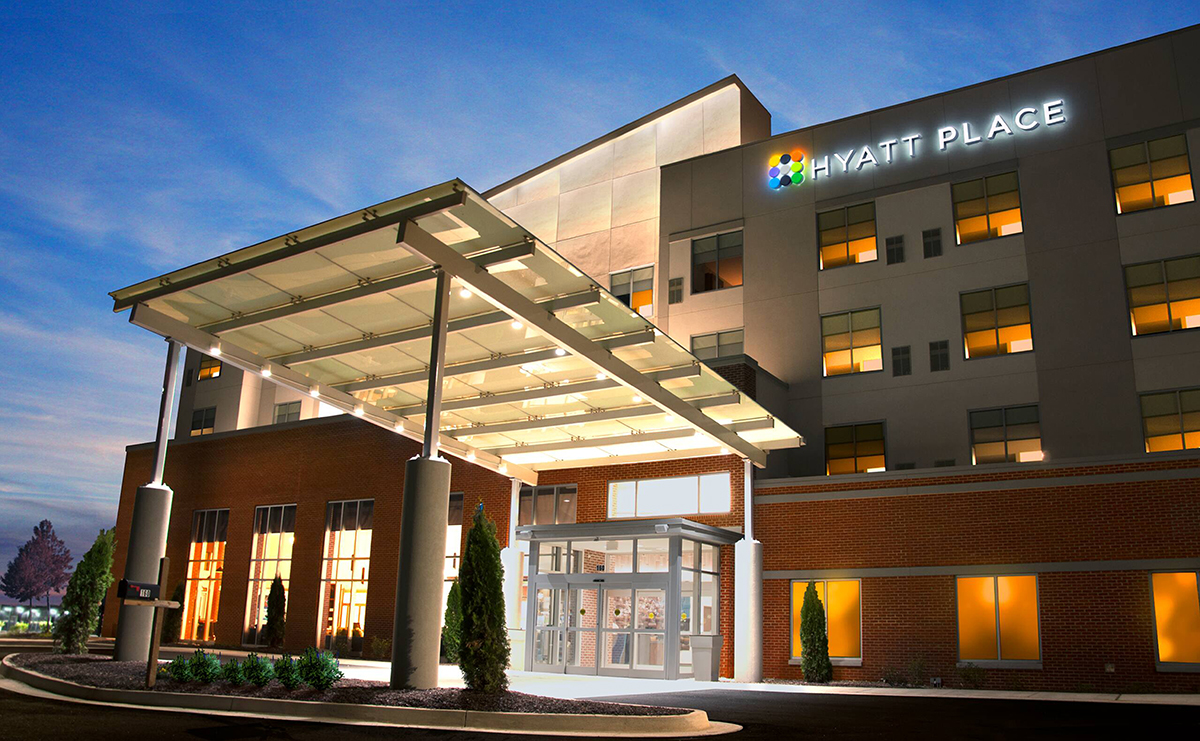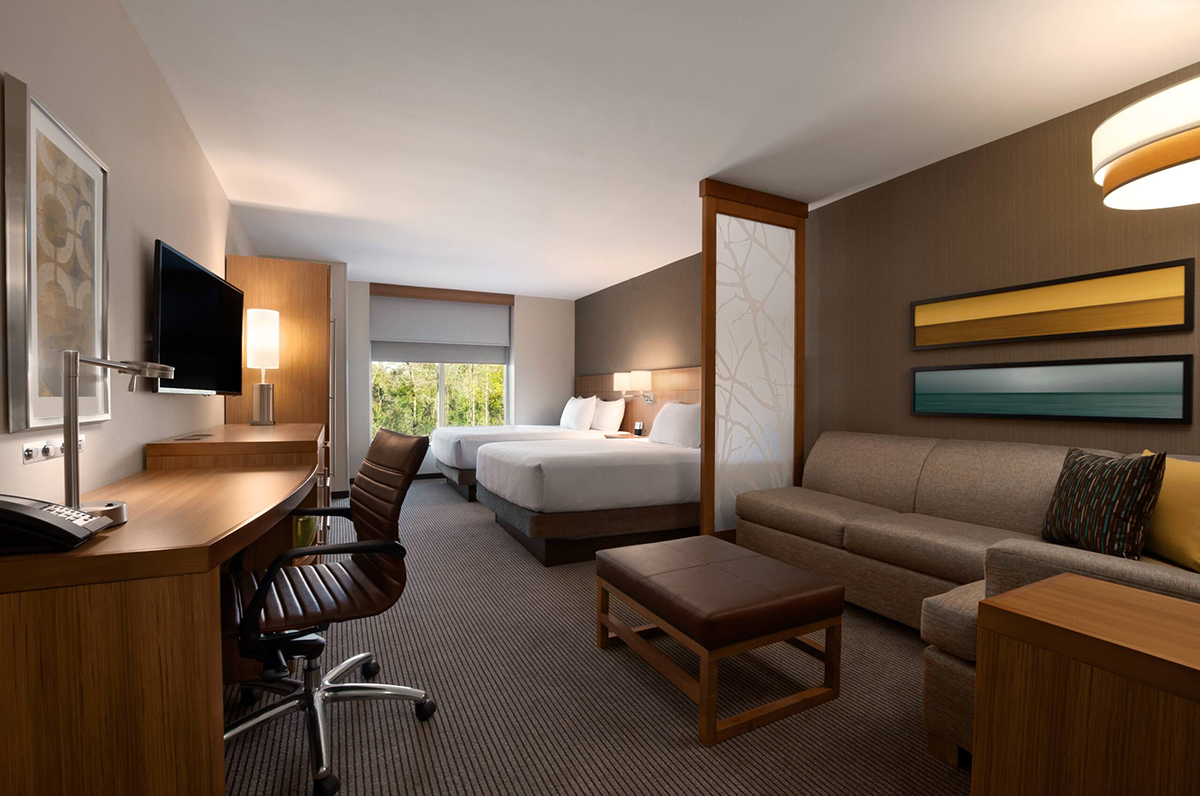

After all, as you are planning for your event, and need accommodations for your athletes/attendees, there is a lot to consider. Some, but not all, of those things include:
What dates are you looking for?
For the sake of this article, we’re assuming you have already booked your venue, which means you have specific dates in mind as to when you need rooms. However, there’s more to it than that. For example, it’s always helpful to have a general idea of what else is going on in an area before dates are selected to be sure you have the rooms/rates you need. You also want to allot for space on shoulder dates (if needed) so that people can extend their stays in the city.
How many rooms will you need?
Determining the number of rooms to contract can be tricky if you don’t have any historical data to go off of. A well-thought-out guesstimate based on teams traveling in from out of town, and number of players per team, is usually a good place to start.
In addition to the number of rooms you need, you will need to specify the types of rooms you want. In many cases with youth sports, a family will travel together, and we have generally found that they prefer rooms with two queen beds. Many hotels, particularly properties that advertise themselves as having suites, offer sofas that fold out into beds, meaning the room can accommodate more people.
Where do you need hotel space?
Some events are held in venues that are surrounded by hotels, but in some cities, the venues are located farther out, and there isn’t much inventory in the immediate area. In some cases, hotels located away from the competition venue might be found in an area that also has restaurants and other attractions.

You may need more than one hotel to accommodate the number of athletes/guests you’re expecting; you may also want to offer your participants a range of accommodations and brands in a variety of price points.
What concessions are you looking for from the hotel?
Almost every tournament director needs at least a few complimentary rooms for personnel like tournament staff, officials, VIPs, etc. These rooms may be awarded by hotels up front or on a comp room ratio basis, depending on your total number of rooms booked. Be sure to include this in your initial negotiation with each property.
Are you looking for a property with a free breakfast?
Try to get breakfast included when you can. Hotels sometimes have a breakfast buffet already set up — this could be anything from a full array of hot breakfast options to just coffee, bagels, cereal and fruit. One thing we always advise is finding out what time breakfast begins each day. Some groups will need to eat much earlier than the standard breakfast hours in order to make it to early games. In these cases, you may be able to negotiate an earlier opening time during your group’s stay, or a creative way to help your guests grab something on the go.
Alternatively, you may want to work with the hotel and its food and beverage department to reserve meeting rooms where your team can get its breakfast prior to heading out, particularly if the property doesn’t offer a buffet. A hotel with an onsite restaurant may not be able to handle every athlete and their family coming in at once prior to the game time.
Will you need meeting rooms?
While the majority of the action usually takes place at the competition venue, there may be a need for meeting rooms for team gatherings or parties, rooms where officials can meet and so forth.
Will you be using a stay-to-play policy?
This is absolutely something you will need to decide when you start negotiations. The stay-to-play policy requires teams to book hotel rooms through a specific housing provider. As a side note, stay-to-play has a multitude of benefits across the board for every party included and is far more commonly used today than it was 10 or even five years ago. Not only does it help negotiate better hotel rates, concessions and availability within an area, but it helps ensure the hotel stay-to-play partners will maximize their sales.
Will you be using a housing bureau?
By working with a housing bureau, you will eliminate the need to work on hotel negotiations, reservation and inventory management and troubleshooting issues from your plate. Individuals can book rooms online or over the phone through a custom booking link created just for your event, and teams have the option of putting a room block on hold so they can all stay together at the same property.
In essence, you will let the housing bureau know the answers to the questions above and they’ll take it from there. Most housing bureau professionals — at least those in our company — have worked in the hotel industry previously. They already have a knowledge of who to talk to and what needs to be covered when negotiating with hotels.
In addition, a housing bureau already has a knowledge of your host city and can head off potential problems. As an example, if you’re not completely familiar with a city, many hotels can look good on paper (or on their website) — but some might not be great choices for your group. Maybe the neighborhood isn’t as safe or maybe the hotel is harder to access because it’s out-of-the-way or because there is a lot of construction in the area. A housing bureau will find out all these things in advance — rather than you learning upon arrival.
Another advantage of the housing bureau is its ability help enforce a stay-to-play policy more easily and to negotiate the concessions from the participating stay-to-play hotels. This takes the pressure off you as a tournament director and allows you to concentrate on what you do best. It also means that the housing bureau is responsible for receiving all calls, responding to them and working out any problems with lodging that may pop up for attendees. The housing bureau can also provide you with updated reporting information at each hotel so that you can check on your room pickup, revenue or comp rooms — any time you like. This streamlines the consistency of all of your event’s housing needs, regardless of location, not to mention collection and payment of housing revenue you’ve generated.
Another benefit is to athletes and attendees. A housing bureau will set up a link for registrants’ use on your tournament website in order so that registrants (or parents) can select hotels and book rooms rather then them calling the hotels directly. They don’t have to worry about the guest providing the hotel a special code when they book their room in order to get the tournament room rate — and you don’t have to worry they’ll forget to use that code or something will happen and you won’t get hotel credit for their room that was booked.
Another group that benefits from using a housing partner is the destination management organization (DMO), such as the sports commission or CVB. The housing bureau can provide real-time reporting numbers that will be used as part of your event’s overall economic impact. Having verifiable housing figures is an essential part of your history as an event planner. If the event needs to move to a new market, those figures will be a huge selling point for you.
While there is no one way of booking hotels that will work best for everyone, one thing is for sure: Revenue is a critical component of your profit and loss, and one of the biggest parts of that revenue is what you get from the housing side. When presented with a comprehensive housing solution that is dialed in to meet your specific needs, you have a win before anyone even takes the field. SDM

